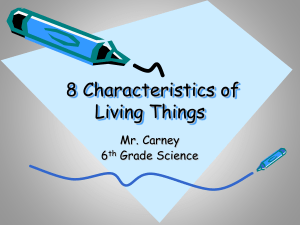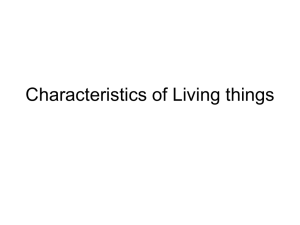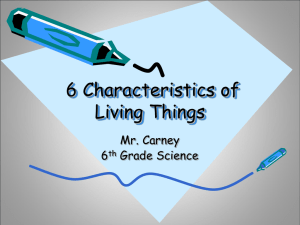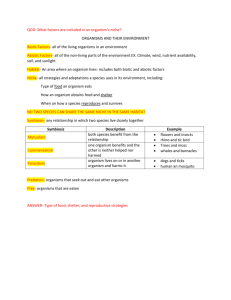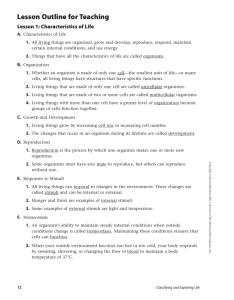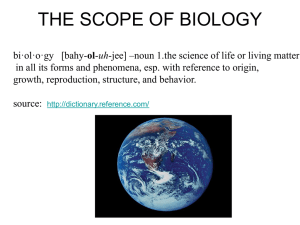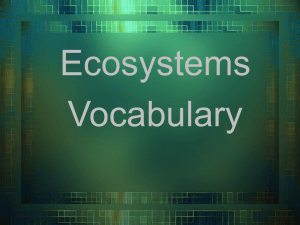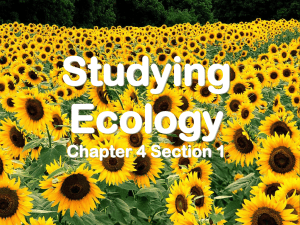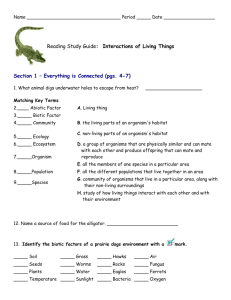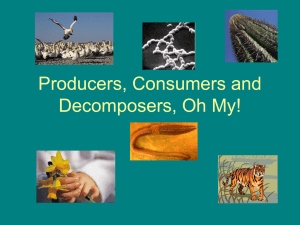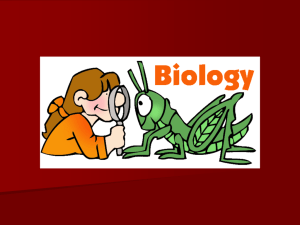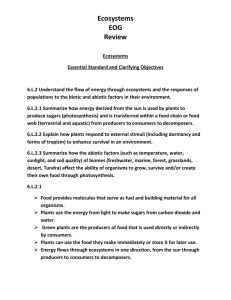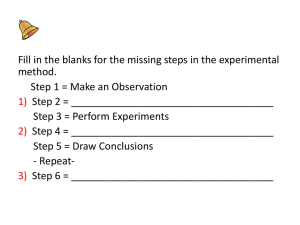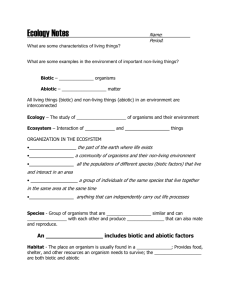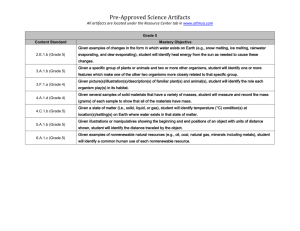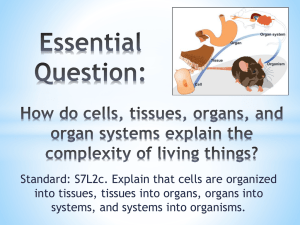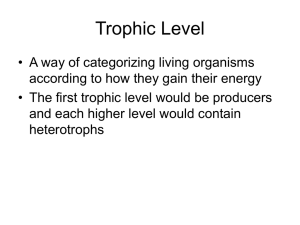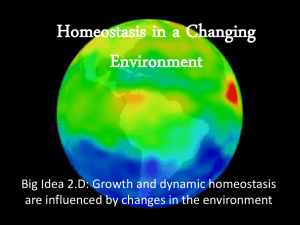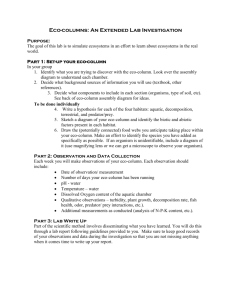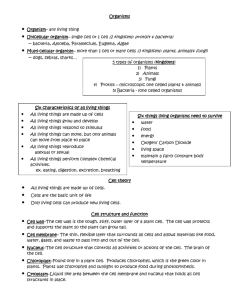Characteristics of Living Things
advertisement
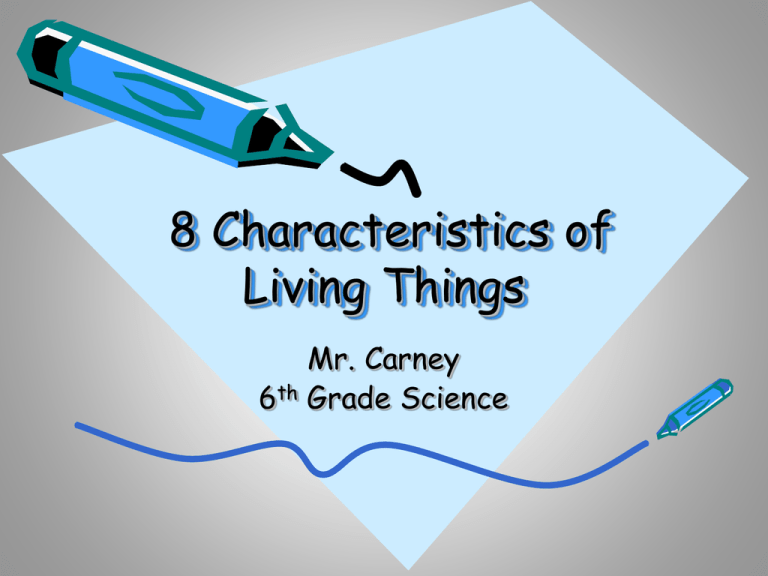
8 Characteristics of Living Things Mr. Carney 6th Grade Science Review previous day Biotic/Abiotic • What makes something alive (biotic) or not alive (abiotic)? • What is “Spontaneous Generation”? 8 Organisms • An ORGANISM is a living thing • All organisms share characteristics that separate them from non-living things • All organisms share EIGHT characteristics that make them alive. A living (biotic) organism must have all EIGHT ! All living things… are made up of cells. • A cell is the smallest “unit of life” • CELL: the smallest basic unit of structure and organization of all living organisms • Some organisms have only a single cell… others have many – the human body contains over 100 trillion cells That’s 100,000,000,000,000!! All living things… display organization. • Arranged in an orderly way • Cells Tissues Organs Organ Systems Organism All living things… grow and develop • Growth: addition of mass to an organism • Development:the process that occurs in an organism's life that results in a more complex organism. All living things… reproduce. Basically, this means that they can make more of their own kind! • SPECIES: A group of organisms that mate together and have fertile offspring • Asexual Reproduction – when a single parent doubles its contents and splits in two to create a new organism (ex:bacteria) MITOSIS • Sexual Reproduction – when two different parents unite to produce a new organism (ex:humans) All living things… respond to stimuli. • Stimuli: Anything from the environment that causes some sort of reaction, such as temperature, light, sound, and other factors that cause living things to respond. Nonliving objects (rocks for instance) do not respond to stimuli! All living things… require and use energy. Used to run the processes of life • Humans (and other animals) get energy from the food we eat • Plants get energy from the sunlight, through a process called photosynthesis All living things can move • Animals move to find food and shelter. Movement can be the difference between life and death. • Plants do not move, but they bend toward sunlight. • All living things also have internal movement of substances (food, water, waste, etc.) Living things adapt Adaptations come about through evolution. Evolution is the process by which a species changes through time. 1-13 All living things are homeostatic • Homeostasis is the ability of an organism to maintain relatively constant internal conditions. An example is temperature regulation in the human body. All organ systems contribute to homeostasis. Quick Group Discussion!!! • What about dead things? 8 Characteristics of Living Things 1. 2. 3. 4. 5. 6. 7. 8. Made up of one or more cells Display organization Grow and develop Reproduce Respond to stimuli Require and use energy Maintain Homeostasis Move Categorize the following as Biotic or Abiotic 1. the Sun: ____________ 2. a bean plant: ____________ 3. the wind: _____________ 4. a river: ____________ 5. a fossil: ____________ 6. a giraffe: ____________ 7. an apple tree: ____________ 8. a bald eagle: ___________ 9. a volcano: ___________ 10. a starfish: ___________ 11. A rock: ___________
